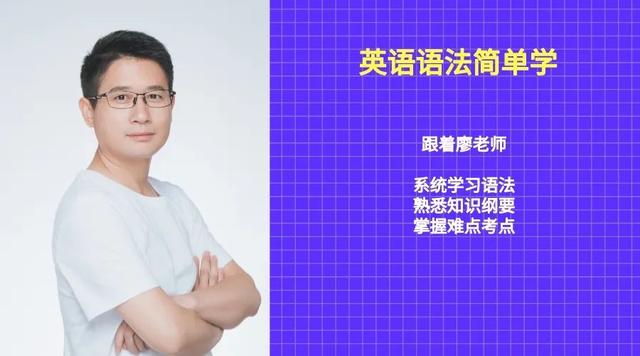【上期回顾】
【本期内容】
一、内容纲要


二、内容简述
(一)构成方式
该时态下,动词的形式是:have/has done。其中,have/has为助动词,done为动词的过去分词。此时,助动词has的主语为第三人称单数,其他情况下的主语时用have。其否定表达为have not(haven't)或has not(hasn't)。
(二)基本用法
通常用于描述过去发生的事情对现在造成的影响或结果。此时,过去发生的事情有可能到现在已经结束,也有可能持续到现在还在进行,甚至还会继续进行下去。如:
I have already seen the film.
我已经看过这部电影了。
【注】此时,看电影的动作到现在已经结束了。
再比如:
He has learned English for five years.
他已经学了五年英语了。
【注】此时,学英语的动作持续到现在还在进行,甚至有可能会继续进行下去。
(三)标志词
常见的标志词有:
1、already/just/never/ever/yet。其中,already一般不用于否定句。如:
They have already finished their work.
他们早就完成工作了。
She has just arrived in Beijing.
她刚到北京。
We have not read the novel yet.
我们还没有看过那部小说。
2、for+时间段或since+时间点或从句(谓语动词用过去式)。如:
The man has lived here for ten years.
那个人在这儿住了十年了。
The man has lived here since ten years ago.
那个人十年前就已经住在这儿了。
The man has lived here since he got married.
那个人结婚后就住在这儿了。
3、so far或up to/till now,表示“迄今为止;到现在为止”。如:
Nothing wrong has ever happened so far.
迄今为止,一切正常。
My father has planted twenty trees in the garden up to now.
到现在为止,我爸爸已经在花园里种了20棵树了。
4、lately/recently等副词,表“最近”。如:
Great changes have taken place in our hometown recently.
最近我们家乡发生了很大的变化。
5、次数。如:
I have been to Paris ten times.
我已经去过巴黎十次了。
6、 in the past/last+时间段,表示“在过去的多少时间以来”。如:
The girl has won five first prizes in different English competitions in the past two years.
那个女孩过去两年以来已经在不同的英语比赛中获得了五次一等奖。
(四)动词的过去分词
其规则变化与动词的过去式相同,都是在动词词尾加-ed。如:
1、直接+ed,如:worked, played。
2、以不发音的e结尾的,+d,如:lived, danced。
3、以“辅音字母+y”结尾的,改y为i,再+ed,如:cried, studied。
4、以重读闭音节结尾的,双写最后一个辅音字母,再+ed,如:stopped, patted。
其不规则的情况主要有以下五种,如:
1、AAA型,如:put-put-put, read-read-read。
2、AAB型,如:beat-beat-beaten。
3、ABA型,如:run-ran-run, come-came-come。
4、ABB型,如:shoot-shot-shot, make-made-made。
5、ABC型,如:swim-swam-swum, take-took-taken。
(五)句型变化
原句:I have already had some coffee over lunch.
否定句:I have not had any coffee over lunch
一般疑问句及其回答:
- Have you already had any coffee over lunch?
- Yes, I have.
- No, I haven't.
划线部分提问:
What have you already had over lunch?
(六)特殊情况
1、have been to(去过已回)与have gone to(去了未回)。如:
Our parents have been to the Great Wall many times.
我们父母去过长城很多次。
Our parents have just gone to the Great Wall.
我们父母刚去长城了。
2、持续动词和瞬间动词。两种动词都可以用于现在完成时,但如果是瞬间动词,不能与时间段连用。如:
【正确】He has died.(他已经去世了。)
【错误】He has died for ten years.(他已经去世十年了。)
【正确】He has been dead for ten years.(他已经去世十年了。)

